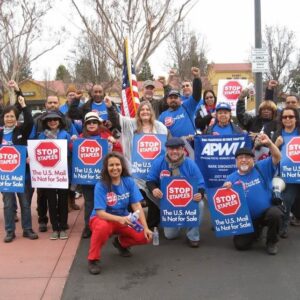July 29, 2008
USPS Unable to Justify Outsourcing, GAO Finds
The Postal Service is unable to demonstrate that it saves money by outsourcing, according to a recent Government Accountability Office (GAO) report, because it has no comprehensive mechanism to measure savings.
“Without cost-savings data, postal managers, stakeholders and Congress cannot assess the risk and value of outsourcing,” the GAO concluded. Nonetheless, the USPS will continue to “explore outsourcing opportunities” and is considering another major outsourcing initiative involving its bulk mail processing network, the report noted.
The GAO recommended that the Postmaster General establish a process to track the results of outsourcing activities that are subject to collective bargaining and report the results to Congress. Although the Postal Service generally agreed with the report’s findings, the USPS disagreed with recommendation to provide Congress with the information about the results of outsourcing.
In its study, Data Needed to Assess the Effectiveness of Outsourcing, the GAO cautioned that the inability of the USPS to provide accurate data could make it difficult “to generate support for future outsourcing efforts.”
Effects on Bargaining Units
“The GAO is echoing views we have expressed for years,” said APWU President William Burrus. “The Postal Service simply cannot demonstrate that outsourcing is more efficient than using postal employees to perform core functions.”
The report pointed out that, under the terms of the collective bargaining agreements, when the Postal Service is contemplating outsourcing, it “must consider five factors: public interest, cost, efficiency, availability of equipment, and qualification of employees – and must determine whether outsourcing will have a ‘significant impact’ on work performed by postal employees covered by collective bargaining agreements.”
If outsourcing will have a significant impact on postal employees, the USPS “must compare the costs of performing proposed work with postal employees and with a contractor, notify the affected union that it is considering outsourcing and consider union impact before making a decision.”
But the GAO was unable to determine the Postal Service’s total outsourcing contracts related to bargaining unit work, because the USPS does not track these contracts separately. And, the GAO found, “the Service does not know the savings related to its outsourcing efforts because it does not have a process to evaluate the impact of outsourcing or to track actual savings.
“Instead, officials told us that the Service projects savings from a wide range of efforts and initiatives, including outsourcing, and reduces its budget accordingly,” the GAO reported.
“Postal employee unions have expressed skepticism about the value of outsourcing and have raised questions about the reality of cost savings and implications of outsourcing,” the GAO observed.
Accountability Needed
The report noted that proposed legislation would make the Postal Service more accountable. “Two bills pending in Congress could affect the Service’s outsourcing efforts,” it said. (The APWU supports the Mail Network Protection Act, H.R. 4236, which would require the Postal Service to bargain with unions before it engages in significant subcontracting.)
The Postal Service claims the bills “could limit its ability to contain costs,” the GAO reported. “Key challenges include whether the Service and its unions can reach agreement on outsourcing issues through collective bargaining and whether the Service can provide analysis to substantiate the benefits of outsourcing.”
Reacting to the report, Burrus asked, “What is the Postal Service trying to hide? The USPS says restrictions on outsourcing could constrain its efforts to reduce costs, yet it refuses to establish a mechanism to monitor those costs.
“The Postal Service has promised efficiency and reduced cost through outsourcing, but it can substantiate neither,” he said. “This report exposes the subcontracting sham, and underscores the importance of passing the Mail Network Protection Act.”
The report doesn’t even address excessive postage “worksharing” discounts for large mailers, Burrus noted, which encourage outsourcing through pre-sorting and other activities. “In theory, discounts should be based on the costs the Postal Service avoids when others engage in these activities,” he said. “The costs avoided are based on postal salaries, however. So clearly, the discounts are not designed to produce savings.
“The Postal Service also is unable to produce data to support the worksharing discounts,” he said. “I suppose they are hoping the American people and Congress will accept the ‘honor system’ for evaluating subcontracting and worksharing.”


